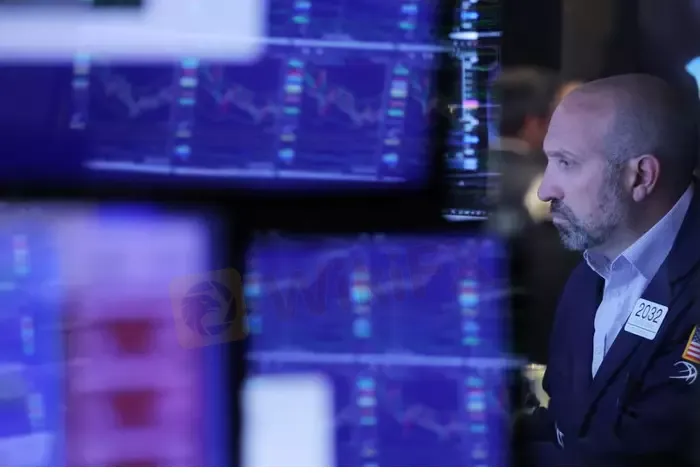简体中文
繁體中文
English
Pусский
日本語
ภาษาไทย
Tiếng Việt
Bahasa Indonesia
Español
हिन्दी
Filippiiniläinen
Français
Deutsch
Português
Türkçe
한국어
العربية
Marketmind: TGIF – is it over yet?
Abstract:A look at the day ahead in markets from Dhara Ranasinghe.

After a wild ride, markets are in a calmer mood for now. Yet, it is Friday 13 and those prone to superstition would be forgiven for being extra cautious on a day renowned for being unlucky.
Given turbulence across asset classes this week, its not hard to see why. Look at the euro, it suffered its biggest one-day drop against the dollar on Thursday since March 2020, tumbling over 1%.
The S&P 500, which managed to claw back some ground late Thursday, is set for a sixth straight week of declines. That would mark the first time in over a decade the U.S. stock index would have done so, Deutsche Bank says.
And then theres the carnage in the crypto currency universe, with the market nursing large losses even if bitcoin has edged back above $30,000.
To be fair theres a lot of head scratching over why exactly some crypto currency tokens supposed to be pegged to the dollar faltered earlier this week.
One underlying reason for the pain there, as well as across risk assets, comes back to worries about high inflation and rising interest rates and whether this will bring a hard landing for the world economy.
U.S. Federal Reserve Chair Jerome Powell said Thursday the battle to control inflation would “include some pain,” repeating his expectation of half-percentage-point rate rises at the next two policy meetings.
The day ahead is relatively quiet on the data front, perhaps giving investors time to take stock of a wild week. But theres also the potential for more volatility.
In Europe, pressure to secure alternative gas supplies is increasing after Moscow imposed sanctions on European subsidiaries of state-owned Gazprom.
Gas prices surged on Thursday, with the key European benchmark gaining 12% as buyers were unsettled by the mounting threats to Europes supply given its high dependence on Russia.
Thats just one more headwind to the world economy rattled markets could do without.

Disclaimer:
The views in this article only represent the author's personal views, and do not constitute investment advice on this platform. This platform does not guarantee the accuracy, completeness and timeliness of the information in the article, and will not be liable for any loss caused by the use of or reliance on the information in the article.
Read more

Unmasking the ‘Datuk’: The Anatomy of a RM638,205 Investment Scam
Authorities in Malaysia have launched an extensive investigation into a fraudulent stock investment scheme, which has resulted in losses amounting to RM638,205.

Unmasking the ‘Datuk’: The Anatomy of a RM638,205 Investment Scam
Authorities in Malaysia have launched an extensive investigation into a fraudulent stock investment scheme, which has resulted in losses amounting to RM638,205.

ATFX Enhances Trading Platform with BlackArrow Integration
ATFX integrates the BlackArrow trading platform, offering advanced tools for forex, crypto, and stocks with automation and real-time analytics for traders.

Exposing the Truth: What Happened with the Losses of Thousands of Dollars on the GlobTFX Platform?
The facts are clear and undeniably shocking—GlobTFX has caused significant financial losses to well-known traders in the Arab world. Eighteen victims have confirmed a total loss exceeding $22,372! But this is just the tip of the iceberg…
WikiFX Broker
Latest News
Germany's Election: Immigration, Economy & Political Tensions Take Centre Stage
WikiFX Review: Is IVY Markets Reliable?
Brazilian Man Charged in $290 Million Crypto Ponzi Scheme Affecting 126,000 Investors
ATFX Enhances Trading Platform with BlackArrow Integration
IG 2025 Most Comprehensive Review
SEC Drops Coinbase Lawsuit, Signals Crypto Policy Shift
Construction Datuk Director Loses RM26.6 Mil to UVKXE Crypto Scam
Should You Choose Rock-West or Avoid it?
Franklin Templeton Submitted S-1 Filing for Spot Solana ETF to the SEC on February 21
Scam Couple behind NECCORPO Arrested by Thai Authorities
Currency Calculator







